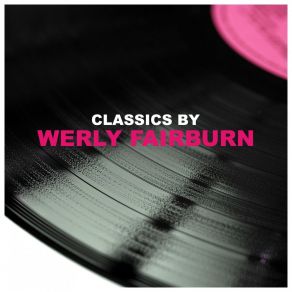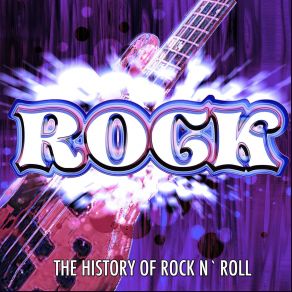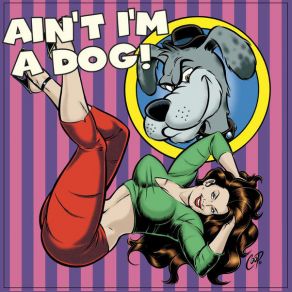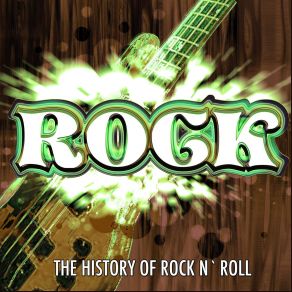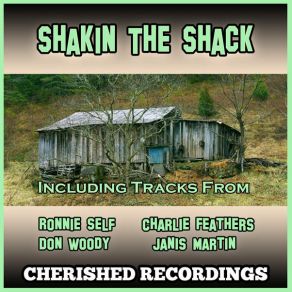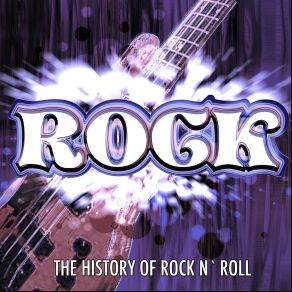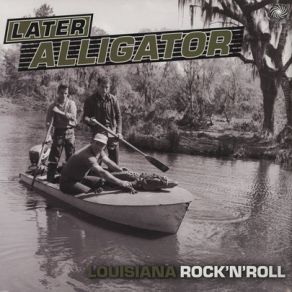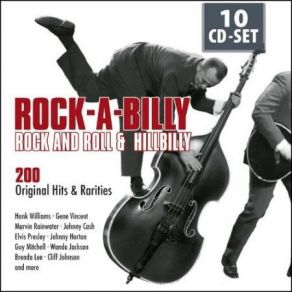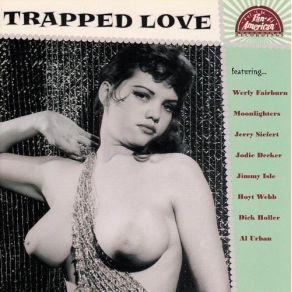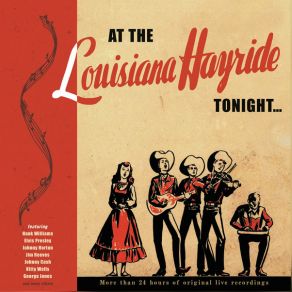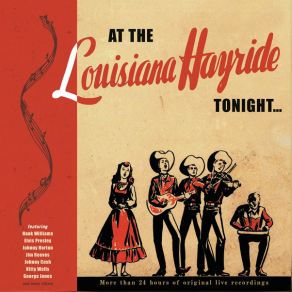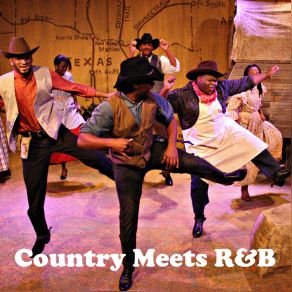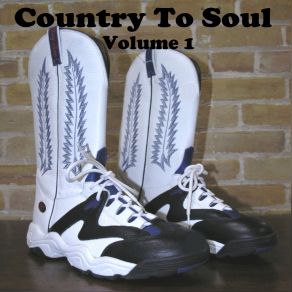Werly Fairburn
Wikimp3 information about the music of Werly Fairburn. On our website we have 3 albums and 46 collections of artist Werly Fairburn. You can find useful information and download songs of this artist. We also know that Werly Fairburn represents Jazz genres.
Biography
[Edit]Werly Fairburn is remembered today as one of the lost legends of rockabilly, but in his own time, his music had a direct influence on country legend Jim Reeves, and he was sufficiently popular to earn his living as a country performer, without ever generating a national hit record. Fairburn recorded for four labels — Trumpet, Capitol, Columbia, and Savoy — during the '50s, but his earliest (and always principal) fame came from the radio, where he was both a deejay and a performer. Known as "the Singing Deejay" (and, before that, as "the Singing Barber") on New Orleans radio in the late '40s, he put together his own group, the Delta Boys, with whom he recorded during the '50s.
Fairburn was born in 1924 near Folsom, LA, the son of a farmer of Cherokee, Scots, Irish, and English ancestry. He grew up listening to the Grand Ole Opry on radio on Saturday nights with the family, and his father (who died in 1937, when Werly was 13) bought a guitar for his sons. Werly showed the greatest interest and competed with his older brothers to learn the instrument. He and his brothers learned to play from an elderly Black man who lived nearby, teaching them blues licks, which they adapted to the hillbilly sounds they heard on the radio.
With the outbreak of World War II, 17-year-old Fairburn — who was married by then — left the family farm to take a job in New Orleans at the Higgins Shipyard. He enlisted in the Navy and joined its maintenance division in 1943, spending the war serving in Honolulu, Hawaii. It was while in the service that Fairburn began thinking about trying music as a career, but as a precaution, he also got training as a barber when he returned to New Orleans. Music became an avocation, something he did in his spare time, but his style — heavily influence by both Jimmie Rodgers and Hank Williams, but also by New Orleans-style R&B — was attractive enough to get him a spot on WJBW radio broadcasting from his own barber shop.
Thus, in 1948, Faiburn first became known to the local public as the Singing Barber. His broadcasting career continued on WWEZ in New Orleans, and he became the Singing Deejay. Subsequently, he enrolled in a local music school to formalize his playing and understanding of music. During the early '50s, he also made his recording debut on Lillian McMurry's Trumpet Records, best known as the early home of Sonny Boy Williamson II. The highlight of his association with the legendary blues label was "Camping With Marie," an upbeat proto-rockabilly-style number that later became regarded as a classic of the music's formative years.
His music was basically country but was done with a beat that made it accessible and even pleasing to younger rockabilly and rock 'n roll fans. His 1956 Columbia single "Everybody's Rockin' " is considered a quintessential example of rockabilly music. Fairburn was a favorite performer locally in New Orleans and had an audience as far away as Dallas, where he appeared on the Big D Jamboree, even without a hit record of his own. His music was heavily influenced by New Orleans R&B, and his stage repertory included pieces like Fats Domino's "All By Myself." Fairburn's openness to those sounds — coupled with his professional flexibility — may have helped him adapt when rock & roll hit in the mid-'50s. Unlike a lot of post-twenty year old country artists, who sounded awkward trying to reach out to the youth market, Fairburn took naturally to rockabilly.
In 1964, he was performing one of his own songs, "I Guess I'm Crazy," on the Louisiana Hayride when it was heard by his friend Jim Reeves. Reeves decided to record the song himself, and "I Guess I'm Crazy" was the single that was in release when Reeves' plane went down on July 31, 1964. Fairburn's success in the Southeast didn't follow him when he moved to California in the '60s, but he kept performing steadily, almost up until his death from lung cancer in 1985. In 1994, Bear Family Records released a CD assembling Fairburn's classic sides entitled Everybody's Rockin' and a live performance of Fairburn doing "All By Myself" at the Big D Jamboree in the mid-'50s surfaced on CD in 2000.
Collections
Title: 100 Rare '50s Rockabilly Tracks
Genre: Rock, Rockabilly
Title: 1950's Hits & Highlights, Vol. 6
Genre: Pop
Title: The History of Rock N Roll, Vol. 5
Genre: World Music
Title: Rockin' R&B Classics
Genre: Hip Hop/R&B, Soul
Title: Country Treasures (feat. Jim Reeves)
Genre: Country
Title: Ain't I'm a Dog (25 More Rockabilly Rave-ups)
Genre: Rock
Title: Mississippi Hillbilly
Genre: Country
Title: Drive-In Memories 2
Genre: Hip Hop/R&B, Soul, Pop
Title: Rockabilly Rockers Vol. 1
Genre: Rock, Country, Rockabilly
Title: 1950's Hits & Highlights, Vol. 3
Genre: Pop
Title: The History of Rock n Roll, Vol. 1
Genre: World Music
Title: Shakin the Shack
Genre: Rock
Title: Everybodys Rockin
Genre: Rock
Title: The History of Rock N Roll, Vol. 3
Genre: World Music
Title: The History of Rock n Roll, Vol. 9
Genre: World Music
Title: Million Sellers From Louisiana Cajun Hits
Genre: Hip Hop/R&B, Soul
Title: Rock Generation, Vol.1
Genre: Rock
Title: Real Deal Rockabilly Classics, Vol.4
Genre: Rock, Rockabilly
Title: Later Alligator: Lousiana Rock'n'Roll (CD1)
Genre: Rock & Roll
Title: Real Raw Rockabilly (CD2)
Genre: Rock
Title: Rock-A-Billy Rock And Roll And Hillbilly (CD1)
Genre: Rock, Rock & Roll
Title: Pan-American Recordings: Vol. 7 You Are My Baby
Genre: Rockabilly
Title: Pan-American Recordings (Vol. 43 Trapped Love)
Genre: Rockabilly
Title: Rock'n'Roll. Get All Stars Here (CD5)
Genre: Rock & Roll
Title: Rock'n'Roll. Get All Stars Here (CD9)
Genre: Rock & Roll
Title: Rock'n'Roll. Get All Stars Here (CD3)
Genre: Rock & Roll, Rockabilly
Title: Ultra Rare Rockabilly's, Vol. 08
Genre: Rock, Rockabilly
Title: Ultra Rare Rockabilly's, Vol. 09
Genre: Rock, Rockabilly
Title: The Fed Story, Vol. 4
Genre: Rock & Roll, Rockabilly
Title: The London American Story - Rarities (CD2)
Genre: Rock & Roll, Rockabilly
Title: Rock-A-Billy Dynamite, CD 23
Genre: Rockabilly
Title: Rock-A-Billy Dynamite, CD 3
Genre: Rockabilly
Title: Rock-A-Billy Dynamite, CD 22
Genre: Rockabilly
Title: Ready Steady Go, Vol. 16 C’mon Everybody (CD2)
Genre: Rock & Roll, Rockabilly
Title: Rockabilly: Red Hot & Rare Volume 2 (CD1)
Genre: Rock & Roll, Rockabilly
Title: Rockabilly And Rock'n'roll Music! (CD2)
Genre: Rock, Rock & Roll
Title: At The Louisiana Hayride Tonight (CD4)
Genre: Rock & Roll, Country, Rockabilly
Title: At The Louisiana Hayride Tonight (CD5)
Genre: Rock & Roll, Country, Rockabilly
Title: At The Louisiana Hayride Tonight (CD6)
Genre: Rock & Roll, Country, Rockabilly
Title: At The Louisiana Hayride Tonight (CD8)
Genre: Rock & Roll, Country, Rockabilly
Title: The London American Story Vol. 2
Genre: Country Folk , Pop, Pop Rock
Title: Rock & Roll History, Vol. 26
Genre: Rock, Rock & Roll, Punk Rock, Pop
Title: Rock & Roll History, Vol. 28
Genre: Rock, Rock & Roll, Punk Rock, Pop
Title: 100 Greatest Rockabilly Songs 2021 (CD2)
Genre: Hip Hop/R&B, Jazz, Rock & Roll, Country, Rockabilly, Classical
